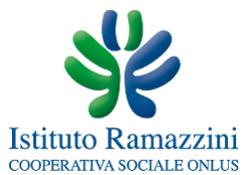
In 2017, French President Emmanuel Macron held fast with his environmental allies against science and declared they would ban the herbicide glyphosate despite the overwhelming consensus on its safety and necessity.
Farmers were alarmed. Though environmentalists, whose only farming tool is a computer keyboard, insisted pelargonic acid (used in France since 1863) would work just fine as a natural alternative, we showed that isn't true. It is instead why better products were invented. Pelargonic acid is not bad, it has the same basically non-existent toxicity as glyphosate for animals and humans, (impossible to get any harm unless you drink them out of a bottle) and is no worse for the environment, but its cost is 100X that of glyphosate. That is like environmentalists saying natural gas is bad, we should switch to whale oil because it's more "natural."
France heavily subsidizes agriculture already, in order to remain competitive. A French cow gets twice as much income from the government as a farmer earns in sub-Saharan Africa each year. If the cost goes even higher, that is more French taxes needed to keep the consumer price low enough that anyone will buy it. That is not smart politics at a time when the Euro is wobbling again.
French lawmakers gave Macron an exit from his bizarre political promise, so he can blame it on them that they have walked back his pledge to phase out use of the herbicide by 2021.
Finally, Europeans have caught on to the junk science at Ramazzini Institute - now let's get Mount Sinai and George Washington University to do the same.
Meanwhile, Politico notes, the Belgian government rejected claims by the anti-science activists at Italy's Ramazzini Institute who insist that glyphosate undermines sexual and reproductive health. There is no plausible biological or toxicological mechanism for that, so activists have instead had to pursue epidemiology - statistical correlation - and then trot out flawed pilot studies like Ramazzini creates using Sprague Dawley rats (naturally) hoping to legitimize the statistics they manufactured. But that has left them and the International Agency for Research on Cancer (IARC) alone against the world of science.
"In the end, these recent publications by the Ramazzini Institute provide very little for what we already know, namely that glyphosate can be used safely," the government in Belgium wrote.
The saddest part for Americans; both the Icahn School of Medicine at Mount Sinai in New York and George Washington University help Ramazzini with this nonsense. If you object to these political agendas claiming to be research, write Dennis S Charney, MD, Dean at Mount Sinai (dennis.charney@mssm.edu), or call him at 212-241-8884 and ask him to stop undermining trust in science. And you can write Thomas J. LeBlanc, PhD, President of George Washington University, or call 202-994-6500.



